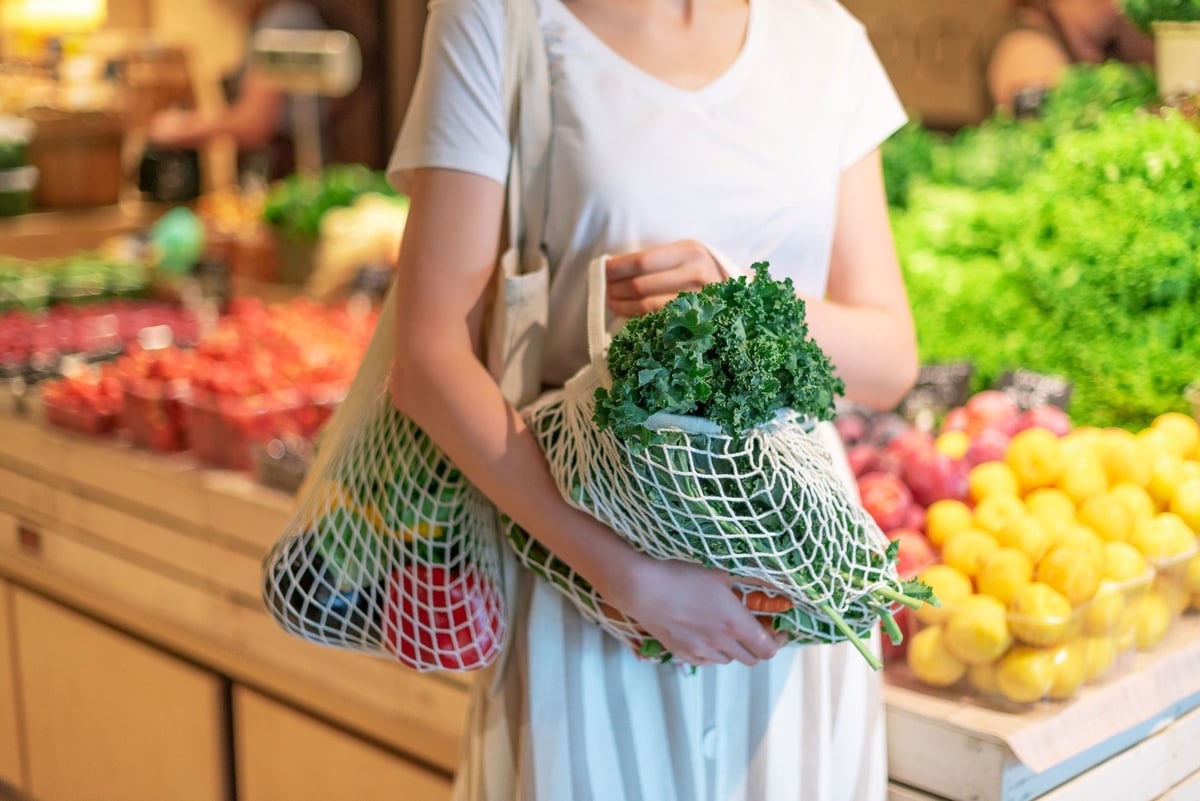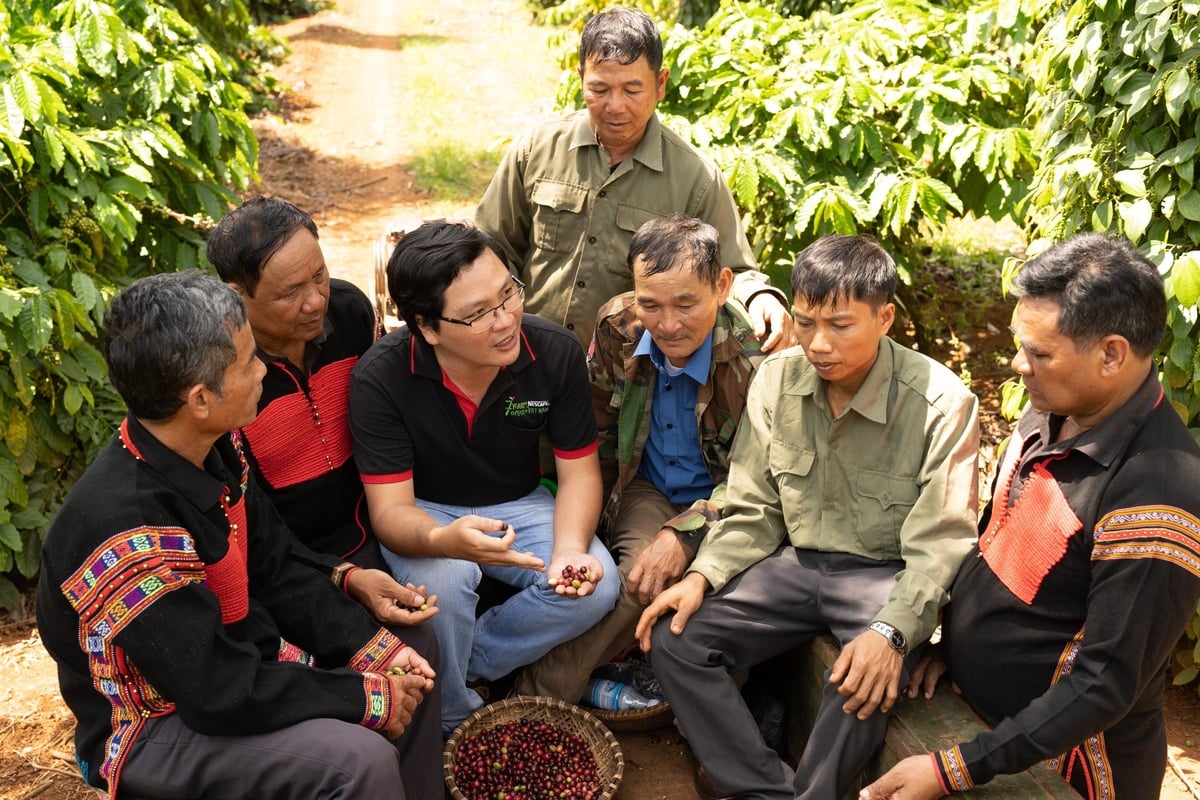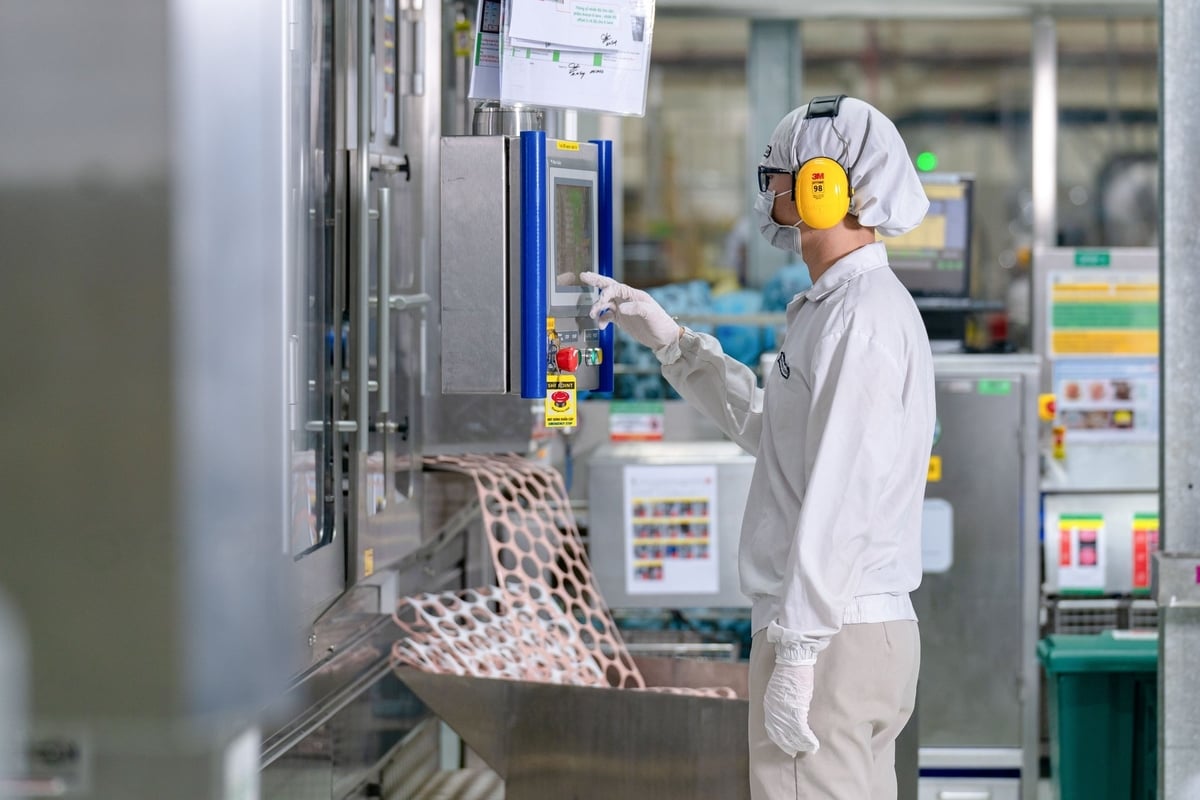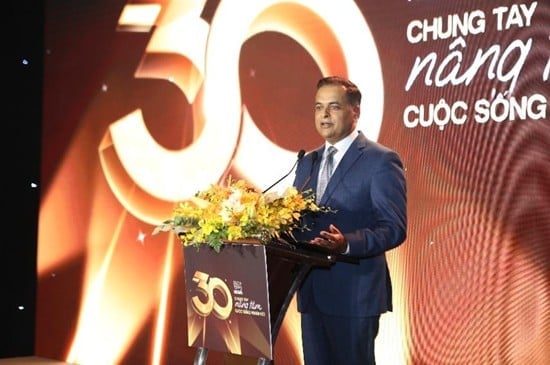December 30, 2025 | 22:11 GMT +7
December 30, 2025 | 22:11 GMT +7
Hotline: 0913.378.918
December 30, 2025 | 22:11 GMT +7
Hotline: 0913.378.918
As consumers become increasingly environmentally conscious, legal regulations grow more stringent, and investment capital shifts toward greener and more sustainable directions, sustainability has emerged as the key for businesses to adapt and lead in this new era.
According to a GlobalData survey, as many as 85% of Vietnamese consumers stated that they prioritize brands that clearly demonstrate a commitment to the environment and the community.
A 2024 report by NielsenIQ further confirms that consumer behavior is undergoing a strong shift toward sustainability. Approximately 24% of Vietnamese consumers are currently focused on green living in the short term, while 16% have already integrated sustainability criteria into their long-term consumption plans.

Consumers are increasingly focusing on green lifestyles and sustainable consumption plans. Photo: Nestlé Vietnam.
It’s not just the market that is shifting, national and global policies are also strongly driving the integration of sustainability into corporate strategies. In Vietnam, the government has introduced the National Green Growth Strategy for the period 2021–2030, reflecting a clear commitment to making sustainability a core business performance indicator rather than just a promotional slogan.
Importantly, sustainable development is no longer viewed as a “compliance cost” but increasingly recognized as a "financial lever". Businesses that effectively implement environmental, social, and governance criteria will easily access to lower-cost financing from international financial institutions such as the Asian Development Bank (ADB), International Finance Corporation (IFC), and the World Bank (WB), as well as from global ESG-focused investment funds.
As a result, sustainability should not be seen as a barrier, but rather as a golden opportunity - a strategic path to strengthening competitiveness and securing long-term growth. For companies willing to adapt, sustainable development offers both resilience and relevance in a rapidly changing economic and regulatory landscape.
Over more than three decades in Vietnam, Nestlé has exemplified how sustainable development is not merely a corporate social responsibility commitment, but a strategic pillar of long-term growth. Guided by the philosophy of “Creating shared value,” Nestlé Vietnam has embedded sustainability goals into its core business operations, leading to significant, wide-ranging impacts not only on the environment but also on society at large.
One of the most prominent examples of this approach is the NESCAFÉ Plan, a program that has supported farmers in transitioning toward regenerative agriculture practices. By introducing improved techniques and modern technology, the program has contributed to the sustainable development of Vietnam’s coffee sector.
Launched in 2011, the NESCAFÉ Plan has, to date, supported more than 21.000 coffee-farming households in adopting sustainable cultivation practices aligned with international 4C standards. These efforts have helped farmers reduce water usage by 40–60%, cut chemical fertilizer use by 20%, and increase household income by 30–150% through optimized intercropping models. Additionally, the program has contributed to a significant reduction in carbon emissions per kilogram of green coffee harvested.
The program has also provided training for more than 467,000 farmers and distributed over 86 million high-quality, drought- and pest-resistant coffee seedlings. These efforts have supported the rejuvenation of aging coffee farms and improved the overall quality of Vietnamese coffee.

Nestlé’s agricultural team has been working closely on the ground, supporting and accompanying farmers directly since 2011. Photo: Nestlé Vietnam.
In the field of packaging, Nestlé Vietnam has also been a pioneer in adopting alternative materials, advanced technologies, and innovative packaging solutions designed to support recycling and reuse efforts. This includes the introduction of FSC-certified paper straws, replacing conventional plastic ones, and the adoption of recycled polyethylene (PE) materials in product packaging. These initiatives have already helped eliminate thousands of tons of non-biodegradable material from circulation each year.
Beyond packaging, Nestlé Vietnam is also advancing circular economy practices within its operations. At the Nestlé Tri An factory, recognized as one of the most modern coffee processing plants in Nestlé’s global network, the company has implemented a closed-loop production model. All coffee grounds generated during processing are 100% reused as biomass fuel, reducing dependence on natural gas, cutting CO₂ emissions, and enhancing energy efficiency.
In addition, waste sludge is treated and converted into organic fertilizer, promoting sustainable agriculture, while waste sand is recycled into eco-friendly, non-fired bricks, reducing construction-related emissions and material waste.
Investing in the future through sustainable development creates positive value for communities and strengthens a company’s competitive advantage.

Investing in modern processing technology has enabled Nestlé to increase exports to demanding markets with higher added value. Photo: Nestlé Vietnam.
“This is not merely an expansion of operations, it is a long-term commitment to accompany Vietnam in its era of global growth,” shared Mr. Binu Jacob, General Director of Nestlé Vietnam. His remarks came as the company announced an additional investment of nearly 1.900 billion VND (approximately 75 million USD) in its Nestlé Tri An factory.
This facility is not only one of Nestlé’s most advanced coffee processing plants globally, but also a key contributor to adding value to Vietnamese agricultural products and elevating Vietnamese coffee on the world map.
This commitment not only goes beyond Nestlé’s 30-year journey in Vietnam but also reflects the company’s enduring philosophy of creating shared value. This philosophy has been brought to life through programs that improve farmers’ livelihoods, enhance child nutrition, and drive innovation in green technologies for more sustainable production.

“In the future, we hope to continue investing to create value and generate positive impacts for consumers, communities, and the environment,” said Mr. Binu Jacob. Photo: Nestlé Vietnam.
For businesses striving toward sustainable development, Nestlé Vietnam offers valuable lessons embodied in three core principles. First and foremost, a clear vision must be established: Sustainability should not be treated as a temporary or reactive measure, but instead embedded into the company’s long-term strategic direction.
Second, developing a strong ecosystem of collaboration is crucial. Companies should actively partner with stakeholders who share similar commitments to sustainability, ranging from government agencies and regulatory bodies to farmers, suppliers, and community organizations. Such a network creates consistency in both purpose and execution, enabling more systemic and far-reaching impact.
Lastly, transparency must be at the heart of all communication. This includes openly sharing sustainability initiatives, clearly articulating goals, and honestly measuring and reporting actual outcomes.
This is the journey that any business aiming for a sustainable future can reflect on and learn from.
Translated by Phuong Linh
/2025/12/25/2157-2-170845_745.jpg)
(VAN) Amid the impacts of climate change and market competition, An Giang's agriculture is shifting toward a green, modern growth model, creating a key driving force for restructuring the sector.

(VAN) Two leading enterprises in the agricultural sector have officially cooperated to implement a sustainable value chain model for Viet Nam's shrimp industry.

(VAN) Dien Bien is speeding up ODA projects to respond to climate change and strengthen water management and disaster prevention infrastructure in pursuit of sustainable development.

(VAN) With high automation, large capacity, and a green development orientation, the Hai Duong Plant Branch is becoming an important anchor for the animal feed market.
/2025/12/01/2936-2-222331_70.jpg)
(VAN) Mortgaging his house and giving up a pharmaceutical management career, Mr. Nguyen Quang Duy succeeded in bringing Khanh Hoa's sea grapes to demanding markets such as Japan and the U.S.

(VAN) The large-scale agroforestry investment project aims to develop a leading sustainable agro-industrial center in Angola.
/2025/11/28/3433-1-212821_213.jpg)
(VAN) Many localities across the coconut land of Vinh Long are replicating emission-reducing models in production and daily life, contributing to the targets for emission reduction and green economic development.